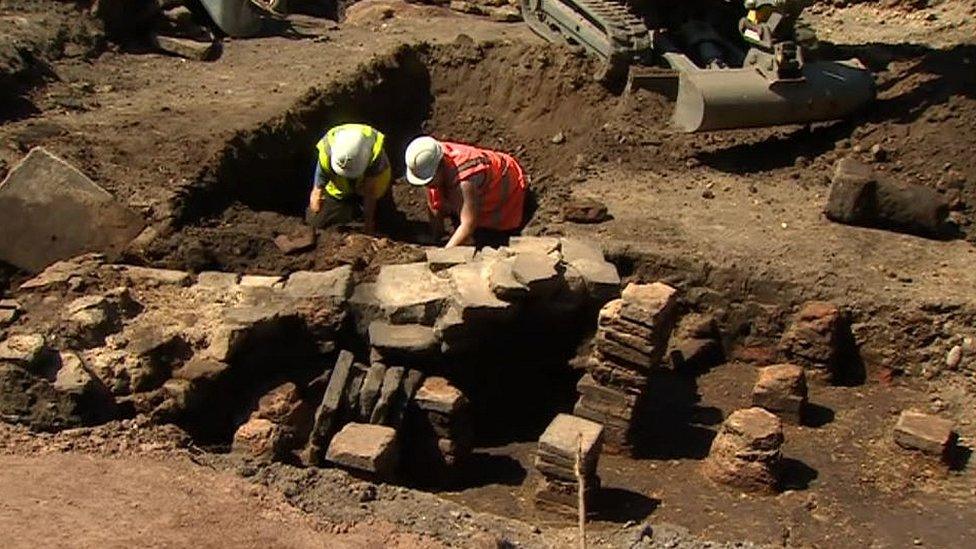Carlisle: Roman bath dig finds to go on public display
- Published
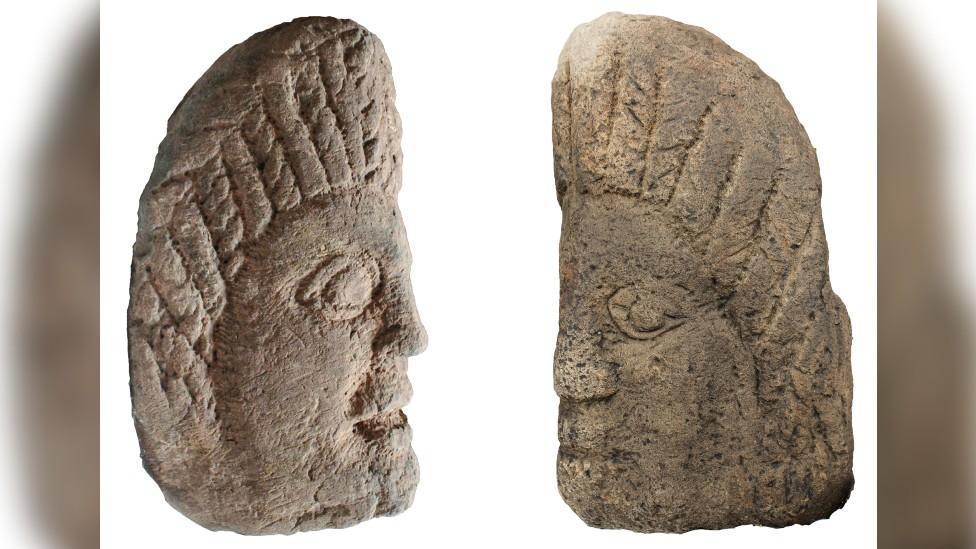
The well-preserved heads have been described as "rare and priceless"
Two huge sculpted stone heads, discovered during the excavation of Carlisle's Roman Bathhouse will go on display in the autumn.
The "once in a lifetime" finds were uncovered during a community dig at the city's cricket club.
Since 2021 more than 1,000 objects have been found at the site of what is believed to be the largest building on Hadrian's Wall.
The treasures that lay buried for 1,800 years will be shown at Tullie House.
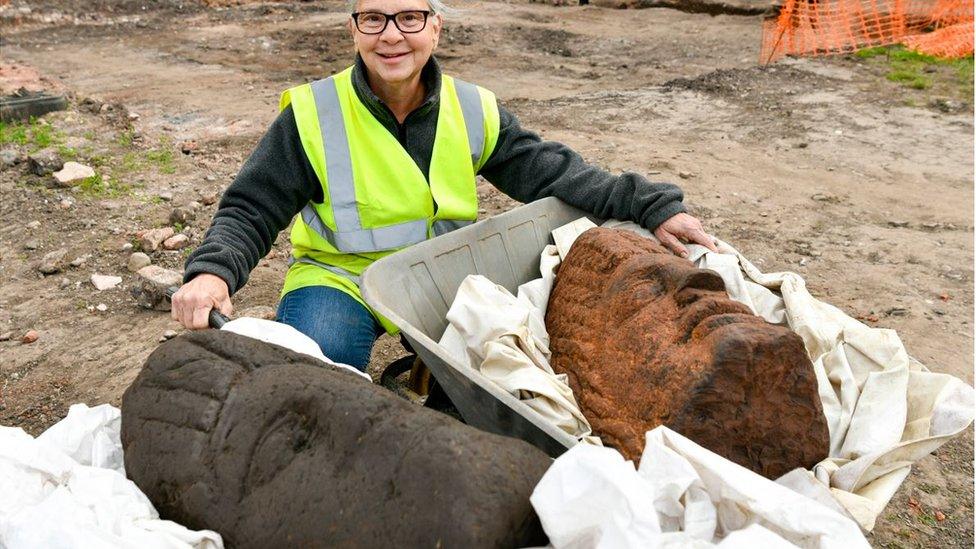
The finds will be displayed at Tullie House from 23 September
The sandstone artefacts once formed part of full-figure pieces standing about 12-15 ft (3.5-4.5m) high.
Lead archaeologist Frank Giecco said they were "unique and priceless".
"Many of these objects are already internationally recognised finds even though they were only discovered by our volunteers this summer," Mr Giecco added.
"We hope that this exhibition can tell the story of how significant Roman Carlisle was, and how utterly unique these finds have been."
The heads and a collection of carved gems known as intaglios and a stone dolphin carving will be among the items forming the Digging Deeper exhibition which will run from 23 September until 11 November.
Mr Giecco said the carvings on gemstones told stories from mythology and gave an insight into the minds of Roman bathers 1800 years ago.
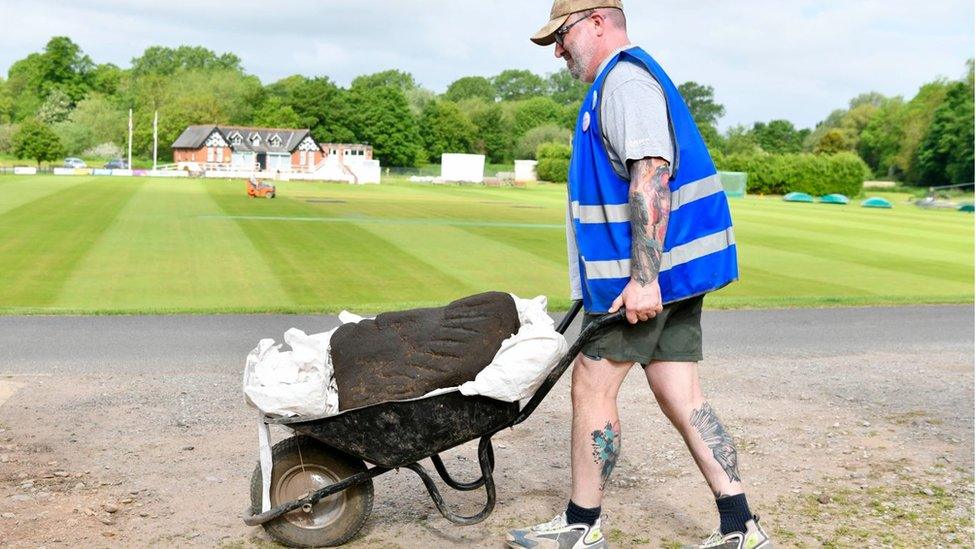
Volunteers have been working at the site since 2021
The dig itself was a community effort with more than 1,678 days given by volunteers in the past two years.
Mike Rayson, chairman of Carlisle Cricket Club, which owns the artefacts, said: "When we first started exploring the site for the new cricket pavilion six years ago, I told Frank Giecco to find either nothing or to find truly something immense, and without a doubt he's delivered.
"The finds from this site are staggering, we are rewriting Carlisle's history, it just takes it to a different level, the immenseness of it."

Follow BBC North East & Cumbria on Twitter, external, Facebook, external and Instagram, external. Send your story ideas to northeastandcumbria@bbc.co.uk, external.
Related topics
- Published29 July 2023
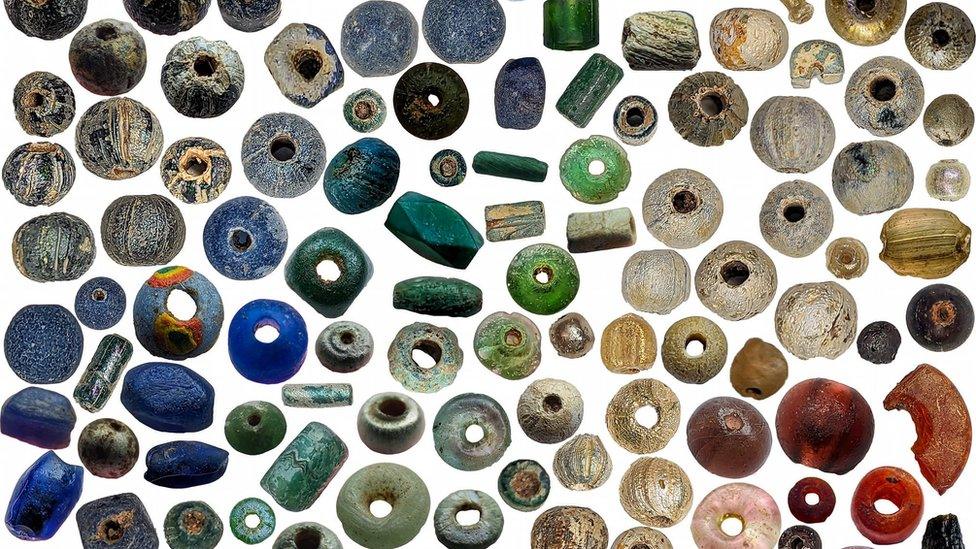
- Published24 May 2023
- Published26 April 2023
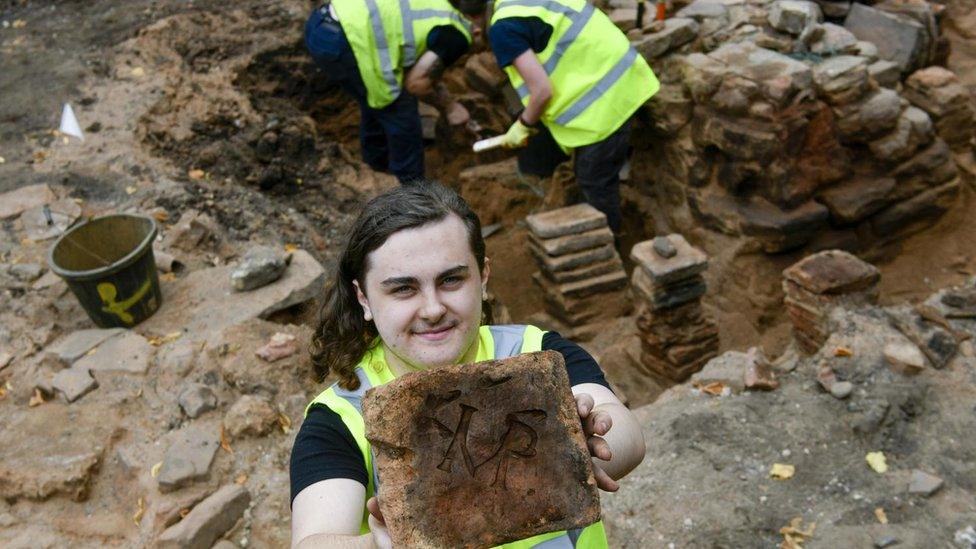
- Published6 August 2021
